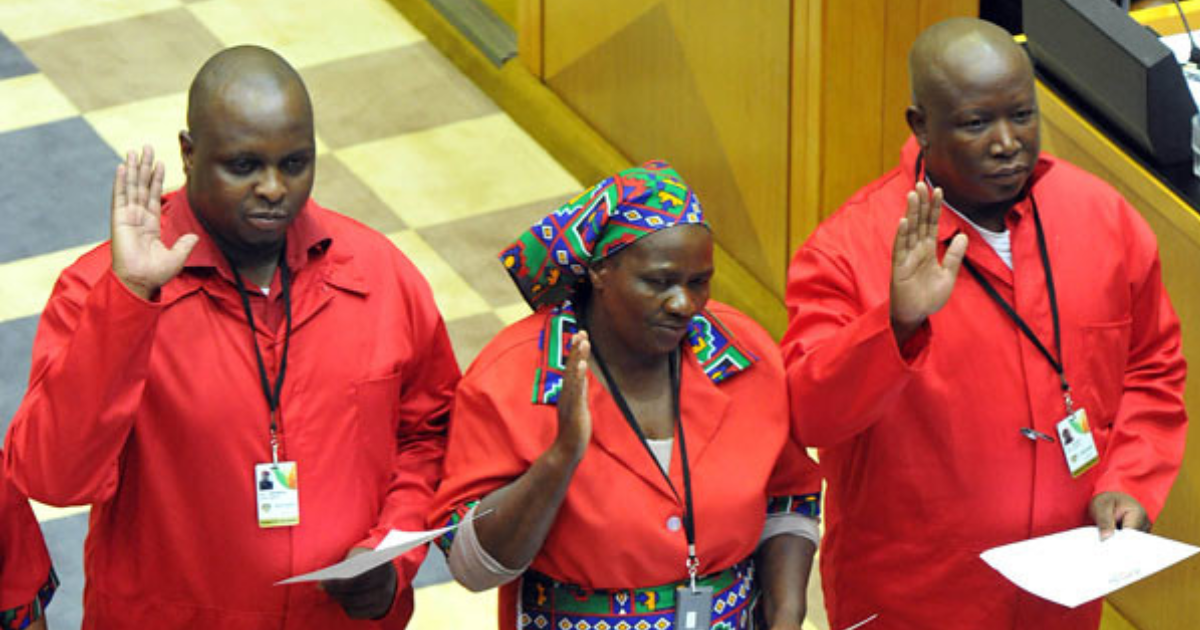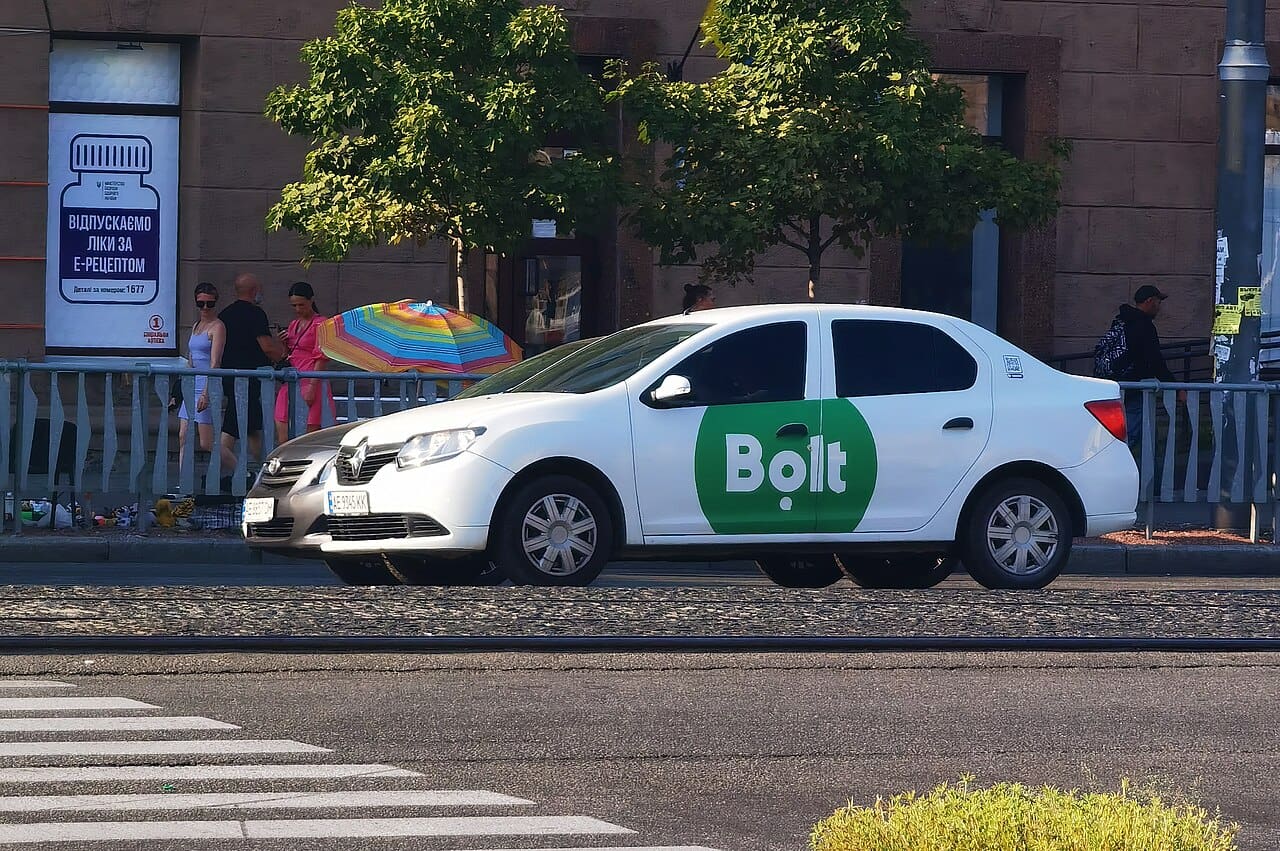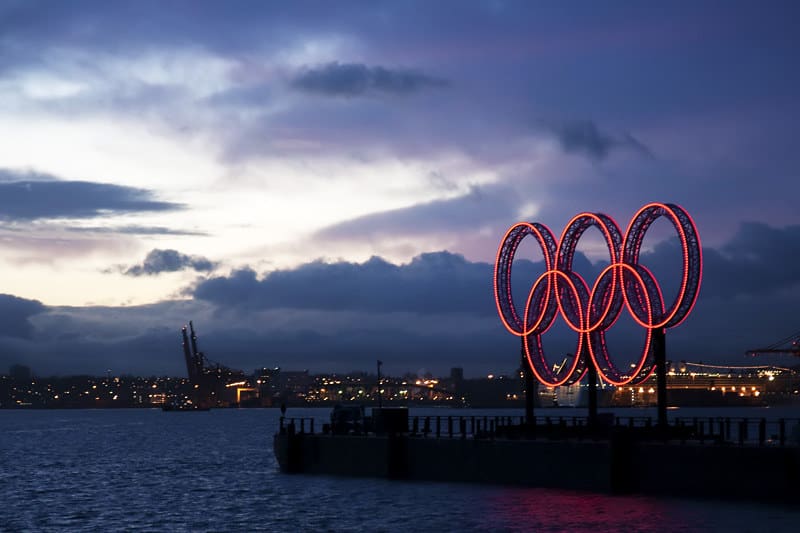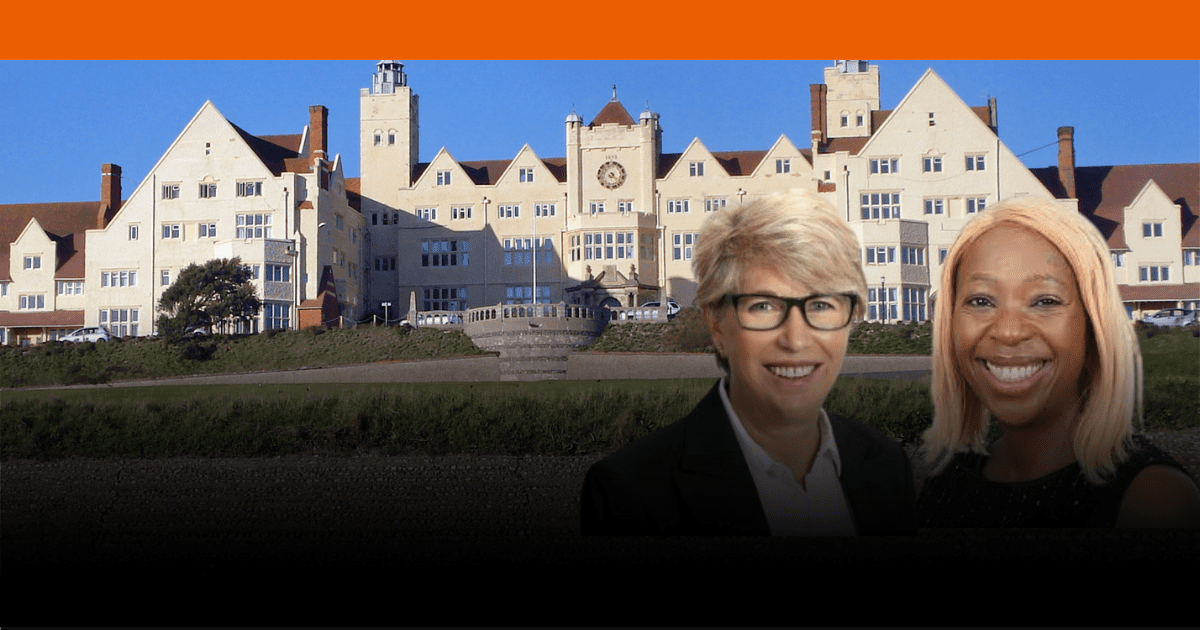Last Saturday, Khayelitsha Rugby Stadium in Cape Town was painted red, packed with Economic Freedom Fighters supporters. The party celebrated its 12th anniversary with a ‘Festival of the Poor’ rally. The timing and celebrations make me reflect on how far it’s come, what it truly stands for, and what the future might hold for it. Twelve years on, is the EFF abiding by what they say they stand for?
I still remember the moment Julius Malema and his comrades entered Parliament in red overalls and domestic worker uniforms. They’ve positioned themselves as the voice of the marginalised, for those left behind in the post-apartheid promise of a better life for all and boldly declaring their fight against poverty, inequality, and racial divisions.
The rise of the EFF as a voice for the youth
The EFF was founded by Julius Malema on 26 July 2013, alongside his ally and former EFF member Floyd Shivambu. They formed the party shortly after they were suspended from the ANC. Malema served as the president of the ANC Youth League. His exit came after some serious disagreements with top ANC leaders, who accused him of causing division and damaging the party’s image.
It was this fallout that sparked the EFF’s bold movement focused on fighting for economic freedom. Influenced by pan-Africanist and Marxist-Leninist ideas, the party quickly gained attention, especially from young people and working-class South Africans who felt let down by the system.
In 2014, the EFF made its debut in Parliament with 25 seats and became the third-biggest political party in the country for a while. It’s been bumped down to fourth thanks to Zuma’s MKP popularity.
But then the cracks began to show
Last August, EFF Deputy President and co-founder Shivambu stepped down from the party and made a surprise move to join former president Jacob Zuma’s uMkhonto weSizwe Party. Many saw his departure as a major blow to the EFF, especially since it came at a time when the party saw a shock drop in support from 10.8% in 2019 to 9.52% during the 2024 elections.
At the same time, both Shivambu and Malema have been implicated in the VBS Mutual Bank scandal, with allegations of looting of the bank. This is disappointing for a politicians who claim to pride themselves on fighting corruption. Since 2018, more than 53 people have been charged for looting over R2 billion from VBS Mutual Bank. We’re talking about a web of theft, corruption, fraud, money laundering, and even racketeering, shocking.
Just last month, ANC treasurer-general Gwen Ramokgopa called on the Reserve Bank and National Treasury to help the Vhembe community in Limpopo rebuild the collapsed VBS Mutual Bank.
“Government, under the tutelage of President Cyril Ramaphosa, has been on the side of the victims. We always said those who stole from VBS must be punished and languish in jail,” she said.
And yet, years later, we’re still waiting for all those implicated to truly face the consequences.
Student activism and a fading flame
As mentioned, the EFF began as a breakaway movement and quickly grew into South Africa’s noticeable political party by tapping into the frustration of a generation that felt overlooked by those in power.
It offered a bold, unapologetic alternative that spoke directly to the realities of the poor and working class. That same passion was felt in student politics.
The EFF Student Command played a role in the #FeesMustFall movement, mobilising students across campuses and demanding free, decolonised education. They challenged both university leadership and government officials, standing firm for students, particularly black, working-class youth, who were struggling to access higher education.
Yet more than a decade later, the revolutionary fire seems to be dimming.
Where is the EFF’s moral centre now?
I also can’t help but think about the quiet departure of Mbuyiseni Ndlozi, once the party’s charismatic spokesperson and a favourite among young people. Known as “The People’s Bae,” Ndlozi brought a rare blend of academic insight and political influence. I, like many others, admired his ability to articulate the party’s vision while connecting with the youth. His absence has been quite noticeable, and it feels like the party has lost a part of its soul.
Professor PLO Lumumba, who chairs the Pan-African Institute, hosted Malema in Kenya, told the BBC, “Malema represents a younger generation of Africans who are now beginning to articulate Pan-African issues in a manner that appeals to critical masses.”
But back here in South Africa, political analyst Richard Calland believes Malema’s appeal is limited. He says it’s unlikely that Malema will attract much support beyond his “loyal, but small” base, adding: “I think that the brand of Malema, which is destabilisation, anti-establishment… militant politics, even violent politics at times I just don’t think it lands with the broader public.”
The EFF’s manifesto made some big promises, from tackling unemployment by creating millions of jobs, to ending load-shedding once and for all, and even nationalising major sectors like banks and mines. But despite these commitments, Malema has often been accused of straying from the leftist values he claims to stand for.
And honestly, it’s hard not to question the sincerity of these promises when the party’s leadership is frequently embroiled in controversy. You can’t claim to fight for the poor while your lifestyle and actions sometimes reflect something very different.
Combined with Shivambu’s departure, the decline in voter support, and unresolved corruption claims. I’m left with questions of whether the EFF is still the fearless force it once was or if it’s now struggling to live up to the promise that inspired so many in the first place.
Lona is a recent graduate with an Honours degree in Journalism and Media Studies from Wits University. Passionate about storytelling, she is eager to learn, grow, and hone her writing skills.




